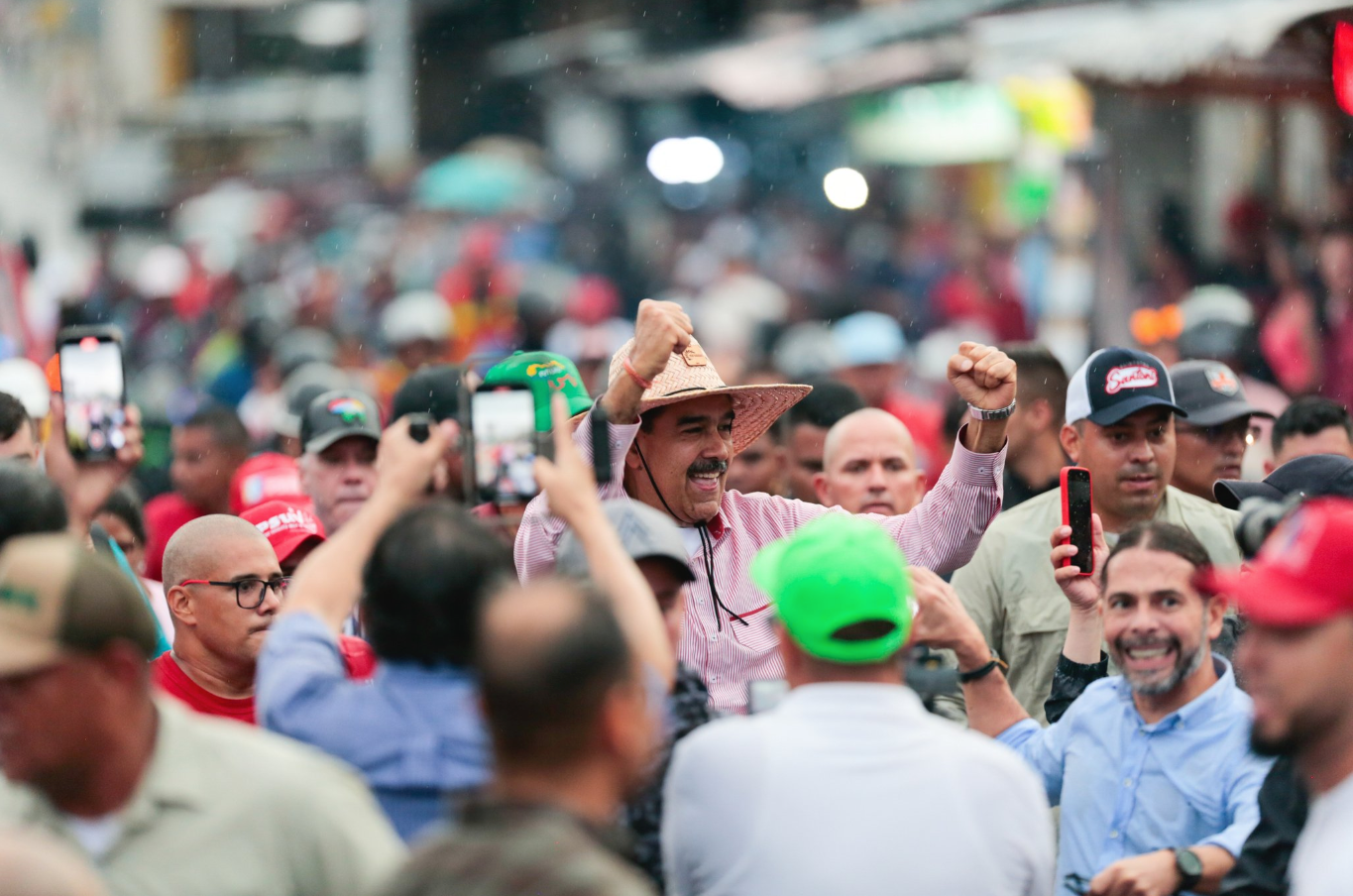How is it possible that such a blatant electoral fraud as the one orchestrated in Venezuela can occur today? How can a political regime remain standing after committing such a felony? These questions have been circulating around the world in recent weeks. And they don’t seem to have a plausible answer. However, despite the seemingly unbelievable situation, there are key factors that explain the sustainability of Maduro’s illegitimate regime. Let’s examine some of them.
Possession of a (diminishing) social support base
Maduro’s regime is not socially isolated. There’s an old myth that dictatorships lack a social support base, something that reality continuously proves wrong. From Francisco Franco to Augusto Pinochet, to mention well-known dictators, none lacked a considerable social base, especially in the early stages of their regimes.
In the case of the Chavista regime, two traditional components can be identified: the social support from ordinary citizens who have at some point sympathized with the government’s Bolivarian facade and the support from militant minorities, increasingly organized into shock troops. It’s clear that the sympathizing population has significantly decreased, which has amplified the importance of militant activist groups. The latest elections indicate that Maduro’s regime still has the support of a quarter of the electoral register, which means it would have decisively lost the last elections, but it can still fill some plazas with groups of militants.
Support from minimally cohesive power structures
Maduro benefits from an institutional architecture created by his predecessor, staffed with operators and adherents who occupy the top echelons of the executive, legislative and judicial branches and are willing to support political corruption of varying degrees—both to benefit from it and to avoid the uncertainty that would follow the regime’s collapse. He also has the support of the current military leadership, although the actions of younger officers who implemented the Plan Venezuela, which prevented the destruction of ballots at polling stations, suggest that not all military personnel are convinced about committing to a Chavista future.
A powerful unifying factor, not directly ideological, relates to the fear among political and military leaders that they would inevitably face reprisals if Maduro fell. The opposition’s efforts to convince the government to accept electoral defeat in exchange for guarantees against revenge are not credible to regime officials or are still seen as highly risky.
Maintaining a degree of ideological adherence
The ideology that unifies the various components of the regime has two references. One is specific and is derived from the Bolivarian revolution of its founder, Chávez, which draws on the sovereignist and anti-imperialist sentiment of the past and associates it with a socialist perspective on social change. The other component, more diffuse, is a direct legacy of the authoritarian political culture that permeated most of the Latin American left in the 20th century. The essence of this political culture is the disdain for democracy, which is seen as a mere nota bene in the context of social revolution.
This political culture still persists in significant communist or radical left parties in the region. The Sandinista Front in Nicaragua and Bolivia’s MAS are good examples of it. But the ultimate reference remains the Cuban Communist Party. It is therefore consistent that these parties automatically accepted the electoral fraud in Venezuela.
Possession of significant (authoritarian) international support
It’s often claimed that Maduro’s regime is internationally isolated. But this is only partially true. The current Venezuelan government has the support of authoritarian regimes in the region and enjoys alliances with global powers like China and Russia, as well as some secondary authoritarian governments, such as Iran and North Korea. In the current international context, Maduro’s regime is clearly benefiting from what has been termed the return of the Cold War. This doesn’t mean it isn’t affected by isolation in much of the Western world, but it’s important not to overstate this circumstance.
In summary
A review of the key factors sustaining Maduro’s regime shows that its fall is not an easy task. Given this reality, various strategies are being proposed to achieve it. A segment of the opposition, particularly in exile, favors violent solutions, including attacks or invasions. However, there’s a broad consensus that this would only justify even more violent repression by the regime, further uniting the powers that be.
Another sector, on the opposite end, suggests accepting the Chavista reality while waiting for the eventual creation of favorable conditions for negotiation. Perhaps the most well-known proponent of this approach is the Spanish PSOE leader José Luis Rodríguez Zapatero, but there are also supporters within the Brazilian and Colombian left who are pressuring their governments to soften their criticism of Maduro’s government.
Finally, there is a broad democratic and progressive sector that advocates for maintaining a firm demand for electoral transparency while seeking a robust strategy to weaken Maduro’s regime. This approach requires considerable effort from the internal opposition, which faces all the resources Maduro has to stay in power, while simultaneously increasing international pressure. It also demands a process of articulated specific agreements and the proper use of time. And, above all, the ability to correctly interpret unexpected signals. It’s worth remembering that in many cases, the validity of the old Slavic proverb that says the fish always rots from the head has been proven. It’s not an exaggeration to think that many of the regime’s cadres increasingly perceive that there won’t be a Chavista future for Venezuela.











